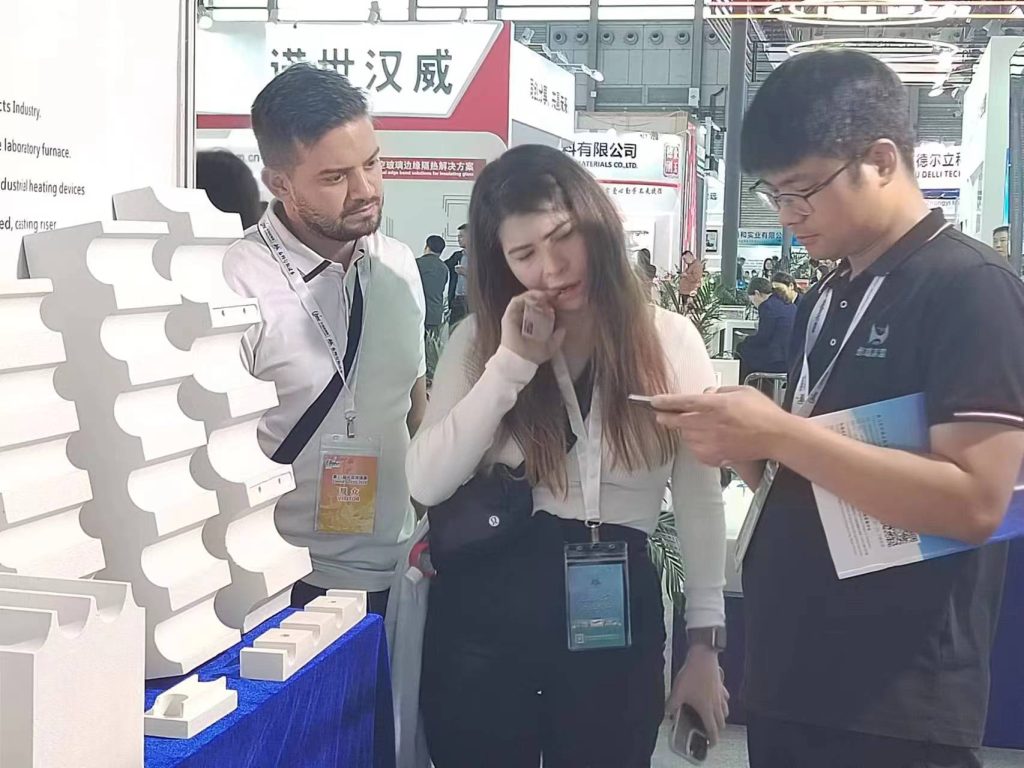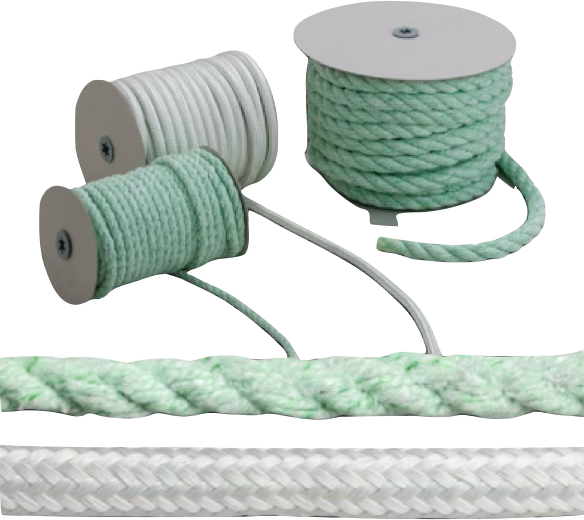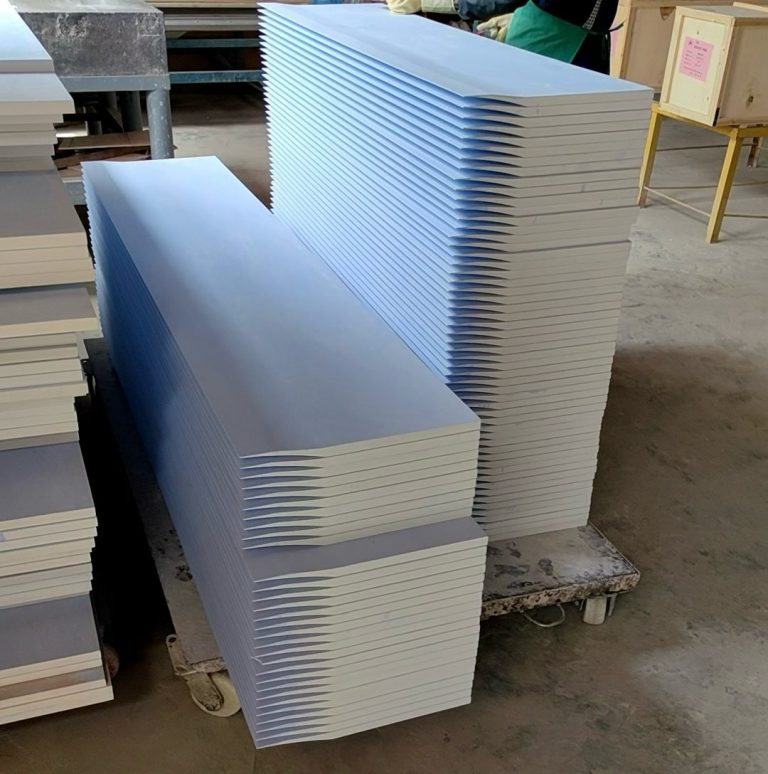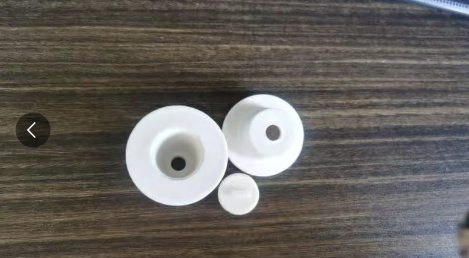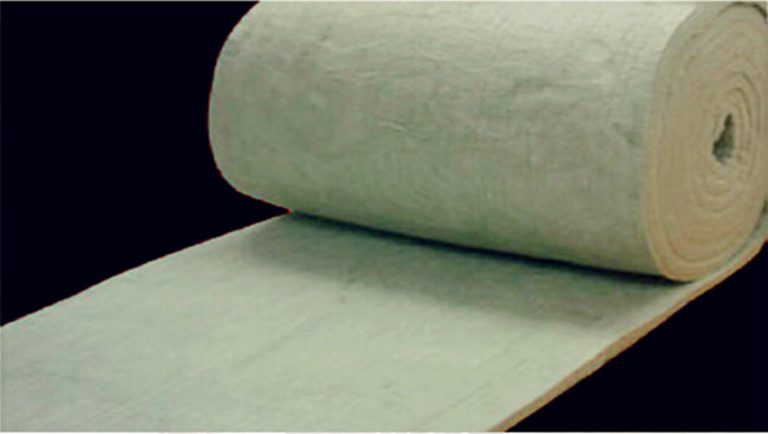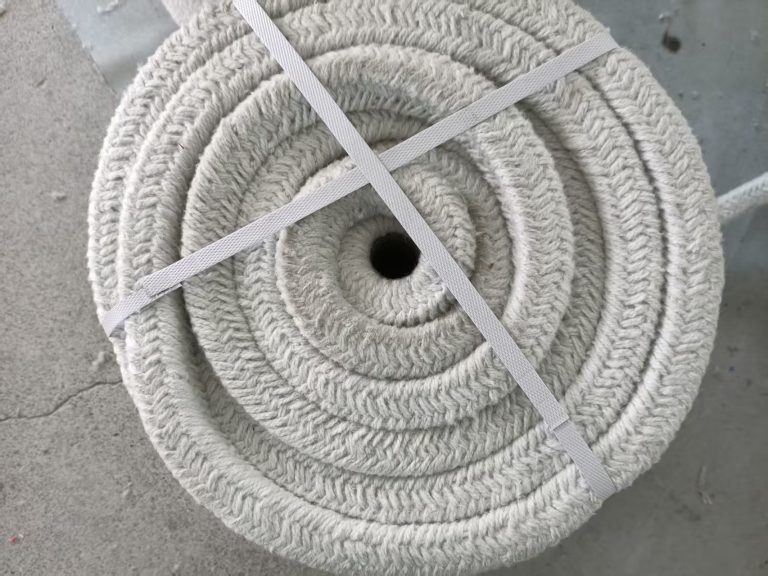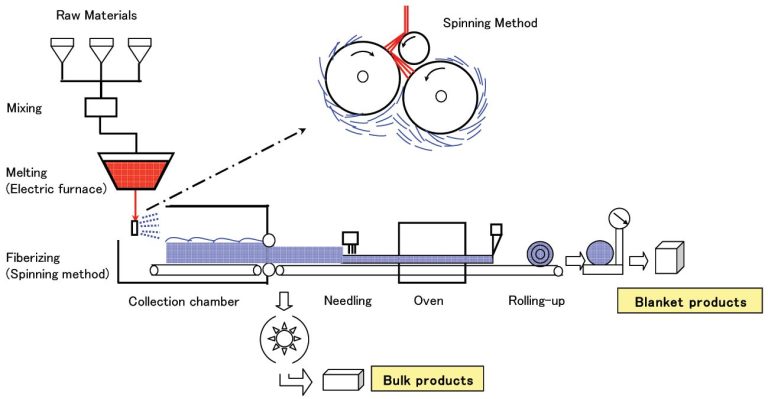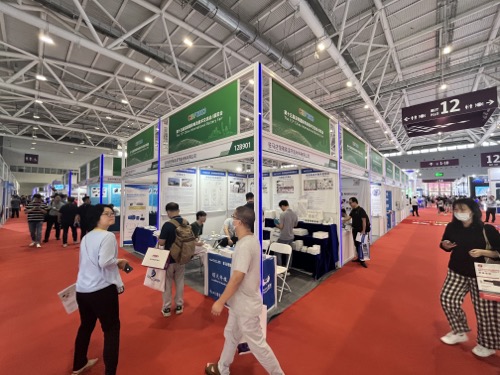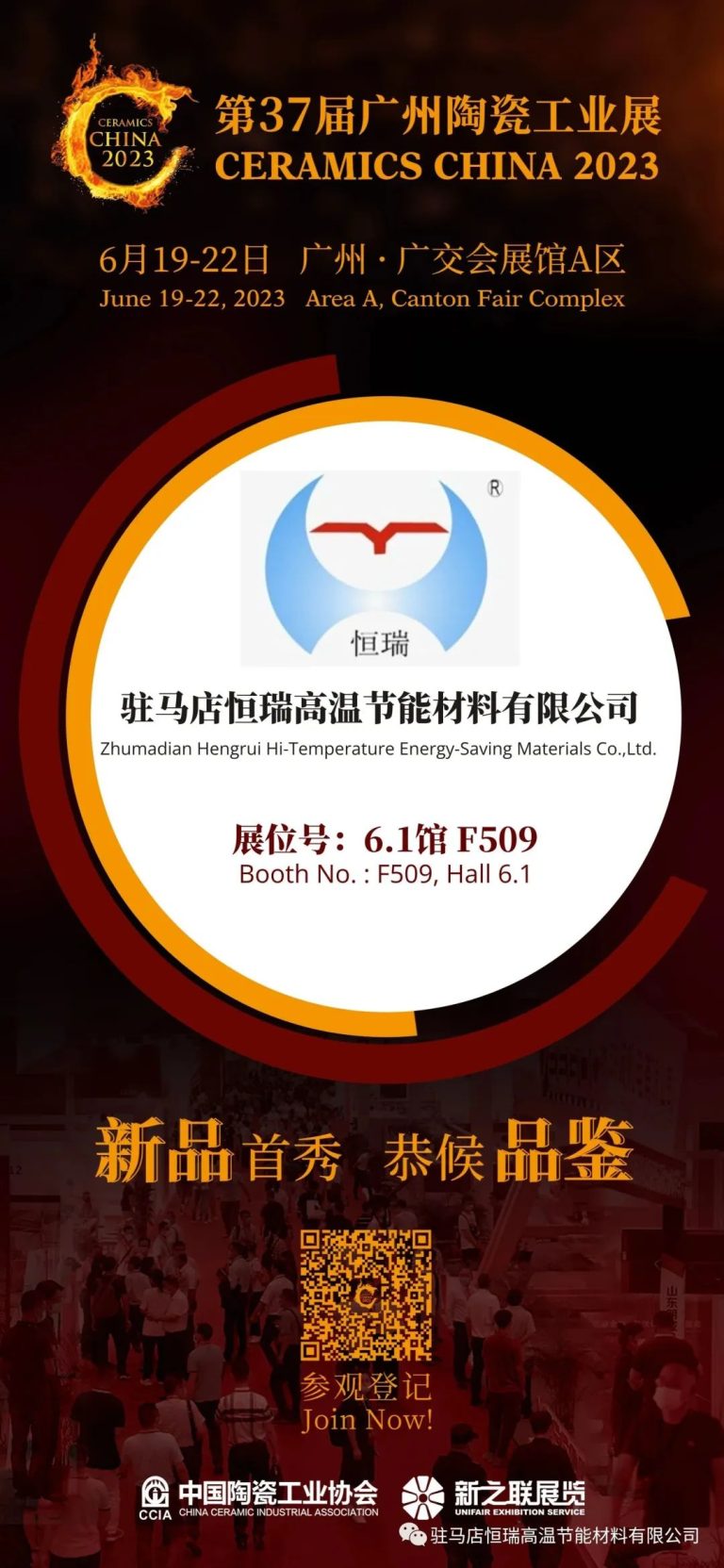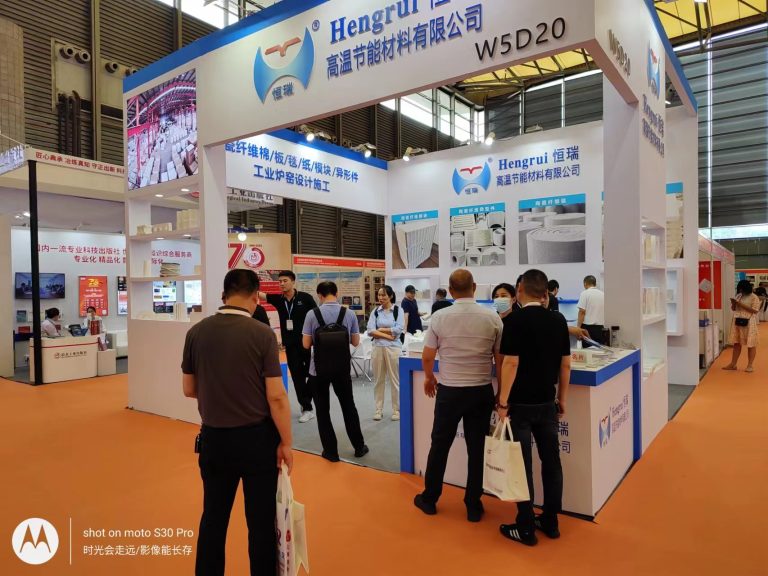As the photovoltaic industry pursues efficiency and reliability, electric heating solutions are becoming increasingly relevant. A Chinese materials enterprise is providing critical support for global new energy equipment with innovative high-temperature insulation solutions.
At the 17th International Photovoltaic Power Generation and Smart Energy Conference & Exhibition (2024 SNEC), the booth of Zhumadian Hengrui High-Temperature Energy-Saving Materials Co., Ltd. drew bustling crowds. Technical personnel were explaining the performance parameters of a white panel to a German PV equipment manufacturer: "This HR1600 polycrystalline ceramic fiber board withstands temperatures exceeding 1600°C, with a thermal shrinkage rate of less than 1%, specially designed for high-efficiency crystal growth furnaces."
As a high-tech enterprise with 14 years of deep expertise in high-temperature insulation materials, Hengrui High-Temperature showcased its full range of ceramic fiber solutions at this global PV industry event. The product matrix on display, from basic ceramic fiber wool to complex shaped components, demonstrated breakthroughs by a Chinese company in the new materials sector.
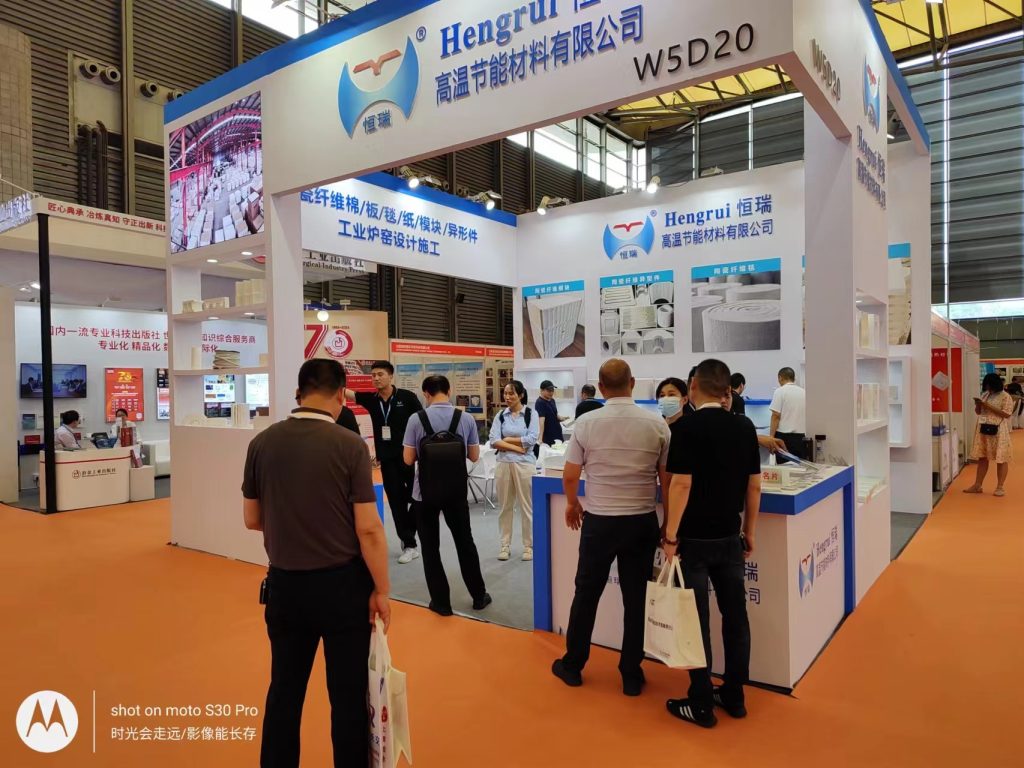
01 Deepening High-Temperature Expertise: The Unseen Leader
Established in 2010 and headquartered in Liuge Industrial Park, Yicheng District, Zhumadian City, Henan Province, Zhumadian Hengrui High-Temperature Energy-Saving Materials Co., Ltd. has grown over fourteen years from a company with registered capital of 20 million RMB into a specialized ceramic fiber manufacturer with an annual production capacity exceeding 6,000 tons.
The company currently operates a modern production base covering over 8,000 square meters, employing 56-100 people, with technical R&D personnel forming a significant core of the team.
Hengrui High-Temperature has obtained GB/T1900-2008/ISO9001:2008 International Quality Management System certification. Its products not only cover the domestic market but are also exported to more than thirty countries and regions including the United States, Germany, Australia, South Korea, and India.
"Survival through quality, development through integrity" has been Hengrui High-Temperature's consistent business philosophy. The company specializes in the R&D and manufacturing of aluminum silicate ceramic fiber products, offering a comprehensive line of high-temperature insulation solutions including ceramic fiber wool, blankets, boards, modules, and custom-shaped parts.
02 Core Technological Advantages
In PV equipment manufacturing, the insulation performance at high-temperature stages directly impacts equipment efficiency and energy consumption levels. Hengrui's ceramic fiber boards are manufactured using a vacuum forming process, maintaining excellent mechanical strength even under extreme high-temperature conditions.
The company's products form a complete system categorized by temperature resistance grades:
| Product Series | Classification Temp (°C) | Density (kg/m³) | Linear Shrinkage (%)(24h) | Flexural Strength (MPa) |
|---|---|---|---|---|
| HR1050 | 1050 | 250-350 | ≤1.5 (900°C) | ≥0.5 |
| HR1260 | 1260 | 250-350 | ≤2.0 (1000°C) | ≥0.5 |
| HR1350 | 1350 | 250-350 | ≤3.0 (1100°C) | ≥0.5 |
| HR1430 | 1430 | 250-350 | ≤3.0 (1200°C) | ≥0.5 |
| HR1600 | 1600 | 450-550 | ≤1.0 (1400°C) | ≥0.7 |
| HR1700 | 1700 | 450-550 | ≤1.0 (1500°C) | ≥0.7 |
Technical parameter table showing the performance gradient of Hengrui ceramic fiber boards
Key characteristics of these materials include dimensional accuracy, ease of cutting and installation, low impurity content, low thermal conductivity, and resistance to airflow erosion. Particularly noteworthy is their low thermal conductivity – only 0.08 W/m·K at 400°C, and maintaining an excellent range of 0.15-0.21 W/m·K even at 1000°C.
"We utilize premium local raw materials from Henan, processed with specialized slag removal equipment, ensuring smooth product surfaces, low shot content, and stable insulation performance," explained Hengrui High-Temperature's technical lead. These properties make Hengrui's products ideal insulation materials for key PV equipment like monocrystalline furnaces and polycrystalline ingot furnaces.
03 High-Temperature Challenges in the PV Industry
As PV technology advances towards higher efficiency and larger wafer sizes, production equipment faces increasingly severe high-temperature challenges. The crystal growth stage in silicon wafer production requires temperatures exceeding 1500°C, while PV glass tempering processes also demand stable and efficient insulation.
Traditional insulation materials often suffer from shrinkage, cracking, and powdering under prolonged high temperatures, leading to increased energy consumption and higher maintenance costs. Insulation layer failure in PV glass tempering furnaces causes imprecise temperature control, directly impacting tempering quality and yield rates.
"Modern PV manufacturing equipment imposes three core requirements on insulation materials: higher temperature resistance, longer service life, and lower heat loss," stated a PV equipment manufacturer at the exhibition. "These requirements directly affect our equipment's energy consumption metrics and production efficiency."
Addressing the specific needs of the PV sector, Hengrui High-Temperature developed high-alumina ceramic fiber boards. This product has passed testing and certification by several renowned PV equipment manufacturers and has been successfully applied in critical equipment like glass tempering furnaces.
04 Hengrui's Tailored Solutions
At SNEC, Hengrui prominently showcased three innovative solutions for the PV industry:
- Polycrystalline Silicon Ingot Furnace Dedicated Insulation System: Utilizes HR1600 polycrystalline ceramic fiber boards, capable of withstanding temperatures over 1600°C. Effectively reduces heat loss and improves crystal growth uniformity. Its low thermal conductivity (0.21 W/m·K at 1000°C) significantly lowers equipment energy consumption.
- PV Glass Tempering Furnace Roller Hearth Insulation Solution: Employs custom ceramic fiber modules combined with high-alumina boards, solving the pain points of traditional materials like slag shedding and excessive shrinkage during continuous production. This solution is already implemented in production lines of leading glass processors like North Glass and Xinyi Glass.
- Custom-Shaped Parts Service: Demonstrates Hengrui's technical strength. The company can produce ceramic fiber components in various complex shapes according to customer equipment designs, perfectly matching unique installation space requirements. This capability is particularly crucial for the compact designs of modern PV equipment.
"What we provide PV enterprises is not just materials, but a full-process energy-saving solution from design to installation," emphasized Hengrui's International Marketing Director at the show. The company boasts a professional technical service team capable of offering thermal insulation engineering design and construction services to ensure materials deliver optimal performance.
05 Industry Benchmark Status
Through continuous technological innovation and stringent quality control, Hengrui High-Temperature has grown into a benchmark enterprise in the ceramic fiber field. The company's annual production capacity of 1050 to 1600 polycrystalline fiber series products exceeds 6,000 tons, meeting diverse high-temperature industrial demands.
Within the PV sector, Hengrui's products are applied in multiple critical areas:
- Monocrystalline silicon growth furnace insulation systems
- Polycrystalline silicon ingot furnace insulation layers
- PV glass tempering equipment insulation linings
- Solar cell sintering furnace insulation modules
- PV module laminator insulation systems
"After choosing Hengrui's products, our tempering furnace energy consumption decreased by 15%-20%, with significantly improved temperature uniformity," shared an engineer from a leading PV glass manufacturer at the exhibition. "Even more valuable is the doubling of the material's service life, greatly reducing equipment maintenance frequency."
Hengrui's R&D investments are yielding significant results. The company's recently developed ceramic fiber surface hardening technology further enhances the material's resistance to airflow erosion, especially suitable for high-speed gas environments in PV equipment. Nano-enhanced ceramic fiber composite materials exhibit even lower thermal conductivity and higher strength, representing the development direction of next-generation insulation materials.

